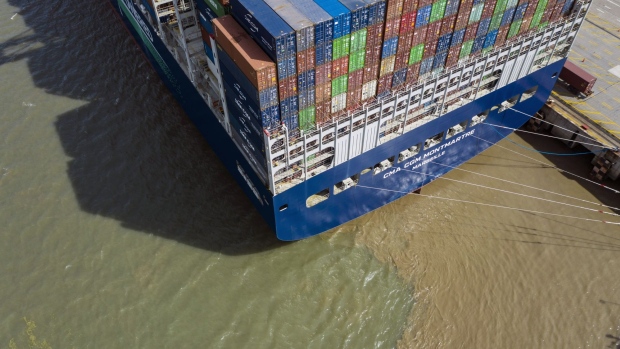The European Union will proceed with two cases against China at the World Trade Organization (WTO) on Wednesday after talks to resolve the issues with its largest trading partner failed to yield results, according to Bloomberg.
The cases relate to China’s restrictions on Lithuanian exports and Beijing’s coercive practices to limit patent holders from exercising their rights to protect their innovations before a court, said Valdis Dombroskis, the European Commission vice-president responsible for trade. Both cases were of “systemic importance,” he said.
“Our first preference was to find negotiated solutions through consultations and we invested a lot of time in those exchanges to avoid further steps,” the EU trade chief told Bloomberg News in an interview Tuesday. “But these exchanges did not bring us satisfactory results.”
The escalation in the trade dispute with China comes as the EU bloc is reassessing its relationship with the country, increasingly seen as a competitor and a rival on issues ranging from market openness to human rights.
The EU has been also trying to re-engage politically with Beijing and wanted the Chinese government to play a more active role as a mediator with Russia following Moscow’s invasion of Ukraine.
The bilateral relationship has worsened since last December after China imposed coercive measures against exports from Lithuania and other EU products that include Lithuanian components after Taiwan opened a trade office in the Baltic country. Companies from Sweden and Germany were also affected, people familiar with the matter said.
As a result, Lithuanian exports to China fell by 80% from January to October compared with the same period of the previous year. The WTO is expected to establish a panel to settle the dispute in early 2023, and verdict could take up to 1 1/2 years.
China banned Lithuanian exports by either blocking customs clearance or imposing phytosanitary requirements on certain products including beef and some alcoholic drinks. Countries including Australia and Canada have been also hit by China’s coercive practices.
The case “is not only about Lithuania, because it affects supply chains within the EU, and we see this kind of pattern of China restricting its trade flows with one or another country in response to different developments,” Dombrovskis said. “We see this is a recurring pattern.”
The EU will become the first jurisdiction to request a WTO verdict over China’s actions to impede companies from protecting their high-tech patent rights. The EU’s trade move against China comes as the bloc is in the final stages of setting up an anti-coercion instrument to increase its arsenal to retaliate in cases like these.
“Within the existing legal framework, we see the WTO panel as the most efficient way forward,” Dombrovskis said. The possibility of activating the anti-coercion instrument in parallel once it is in place is “something to be reflected,” he said.


